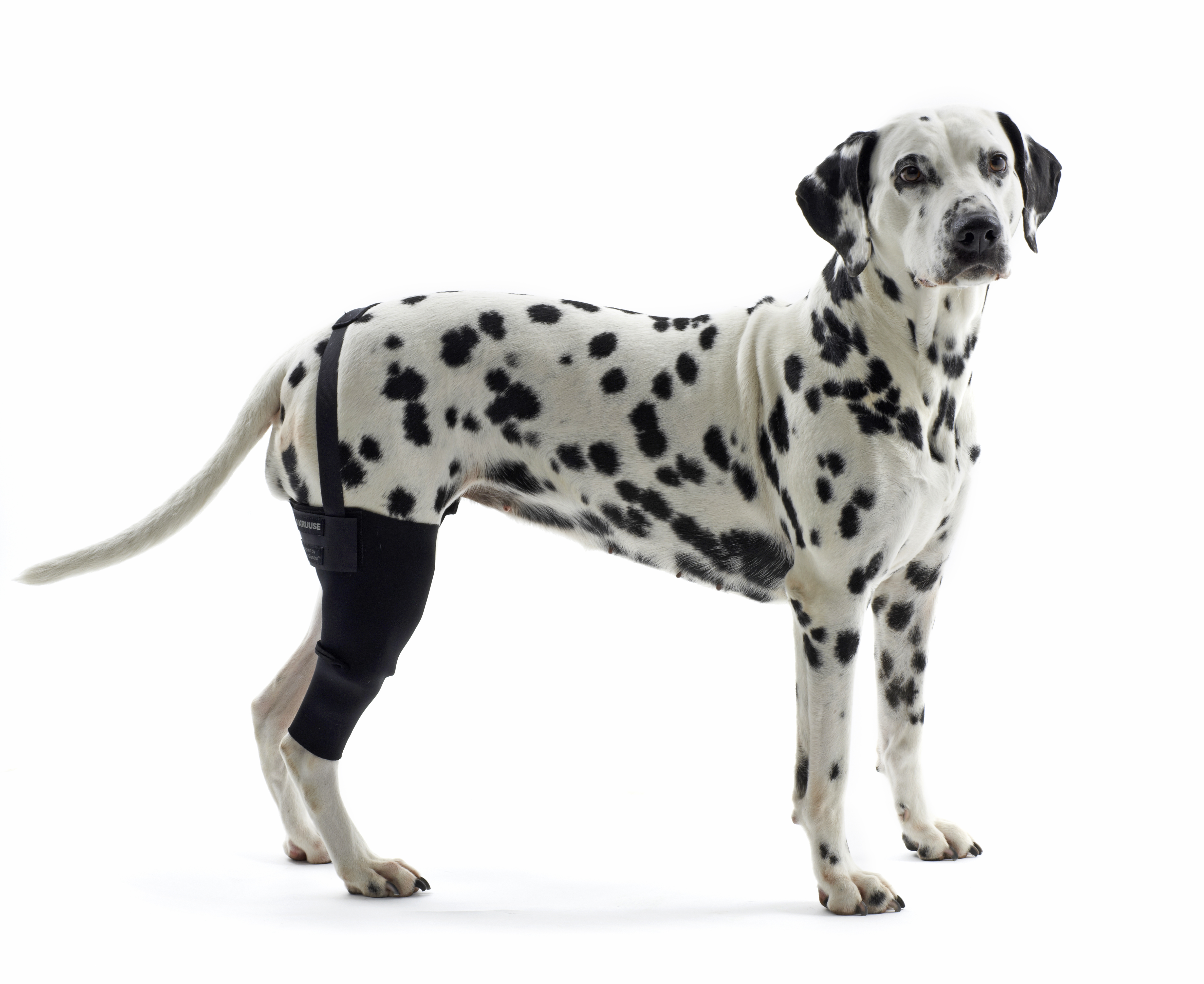KRUUSE Rehab Knee Protector, right
■ Made of 80% neoprene, 11% nylon, 9% polyester
■ Wash by hand and air-dry
■ Suitable for: Chihuahua, Japanese Chin, Maltese, Yorkshire Terrier, Papillon
■ 1/pk
■ Wash by hand and air-dry
■ Suitable for: Chihuahua, Japanese Chin, Maltese, Yorkshire Terrier, Papillon
■ 1/pk
Size
The knee protector can be used before and after surgery and in cases of Chronic Arthritis, Cruciate Ligament Injuries, Arthritis, OCD, Meniscus Injury, Kneecap problems, Tendinitis and other Assessments.
The knee joint is an advanced joint, which often gives the dog long-term convalescence with the risk of subsequent problems following the injury. When the dog's knee joint becomes injured, the musculature quickly weakens and the joint becomes unstable, which can lead to meniscus injuries and arthrosis changes in the articular cartilage.
With the KRUUSE Rehab Knee Protector you can help the dog directly in conjunction with the diagnosisbeing made and support the joint and musculature until it is no longer deemed as being necessary.
With, for example, injuries to the cruciate ligament the dog can take along a protector directly in conjunction with the diagnosis being made and thus not lose as much muscle before the operation, if any, which it would otherwise do.
Instructions for use
The knee protector must be pulled up along the leg to sit well. This is done by stretching the knee protector up on the dog's leg to to cover the dog's knee properly.
Lead the soft strap that holds the protector in place under the abdomen and over the back and fasten it on the corresponding Velcro on the outer side of the protector.
The knee joint is an advanced joint, which often gives the dog long-term convalescence with the risk of subsequent problems following the injury. When the dog's knee joint becomes injured, the musculature quickly weakens and the joint becomes unstable, which can lead to meniscus injuries and arthrosis changes in the articular cartilage.
With the KRUUSE Rehab Knee Protector you can help the dog directly in conjunction with the diagnosisbeing made and support the joint and musculature until it is no longer deemed as being necessary.
With, for example, injuries to the cruciate ligament the dog can take along a protector directly in conjunction with the diagnosis being made and thus not lose as much muscle before the operation, if any, which it would otherwise do.
Instructions for use
The knee protector must be pulled up along the leg to sit well. This is done by stretching the knee protector up on the dog's leg to to cover the dog's knee properly.
Lead the soft strap that holds the protector in place under the abdomen and over the back and fasten it on the corresponding Velcro on the outer side of the protector.
| Weight including packaging in kg | 0,04 |
| Barcode | 5703188315076 |

